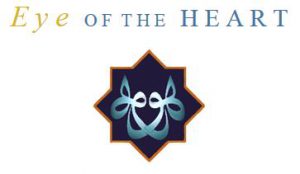
THRESHOLD SOCIETY NEWSLETTER ~ MARCH 2017
The Most Important Thing I Learned From Our Murshid
~ Shaikh Kabir Helminski
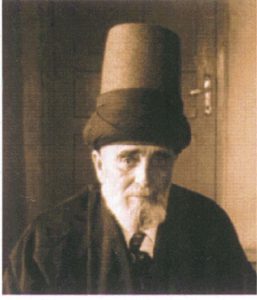 He could have been someone’s grandfather from Sicily, dressed in a three-piece suit, walking with a cane, the bearer of the mischievous yet innocent smile. But, somehow, contained within this merely earthly form was a powerful generator of heart-melting love — a love free of any sentimentality, sanctimony, or possessiveness.
He could have been someone’s grandfather from Sicily, dressed in a three-piece suit, walking with a cane, the bearer of the mischievous yet innocent smile. But, somehow, contained within this merely earthly form was a powerful generator of heart-melting love — a love free of any sentimentality, sanctimony, or possessiveness.
My first encounter with a Sufi Murshid forever changed my idea of what a spiritual master could be. Until that time I had met a number of highly developed human beings from Western and Eastern traditions. I imagined that enlightenment was a state of super awareness, desirelessness, a continual “high.” Not that anyone I met actually embodied that state; but there was the assumption that with enough spiritual practice, which meant sitting still and quiet for long periods of time, supplemented, perhaps, by the continual repetition of some mantra, one would either gradually or suddenly attain such a state.
I was about 17 years old when I left behind religious concepts of doing penance for sins, earning merits through rituals and sacraments, and being rewarded for having dogmatically correct beliefs. By the age of 20, a new universe had opened for me after I had seen through the veil of conventional consciousness, and had a number of experiences of literally ecstatic bliss and white light. But when, at the age of 32, I met a master of love, everything changed for me.
***
Reflection on February’s theme: A Sufi is not a real Sufi until he (or she) feels a responsibility for all humanity. ~ Sulami
~ Adila Ahmed (UK)
 Sulami, otherwise known as Abu AbdurRahman al-Sulami, was born on April 16th 936 C.E. After having been initiated by his father into Sufism (Islamic mysticism) in early childhood he was placed under the tutelage of his maternal grandfather. He took the name Sulami after his mother’s tribe (Sulaym).
Sulami, otherwise known as Abu AbdurRahman al-Sulami, was born on April 16th 936 C.E. After having been initiated by his father into Sufism (Islamic mysticism) in early childhood he was placed under the tutelage of his maternal grandfather. He took the name Sulami after his mother’s tribe (Sulaym).
Sulami brought us classical texts from the biographies of Allah’s friends, and in so doing introduced us to Futuwwa. Futuwwa is said to be the heroic dimension of sufism.
Sufism, as mentioned above, is the mystical teaching within Islam, traceable to the prophet Mohammed. Sufism requires that its followers cultivate their inner worlds so as to imbue and colour their perceptions and interactions with reality on a journey with the Divine Beloved at its heart.
Futuwwa, often translated as chivalry, is a kind of code of honourable conduct rooted in ethical actions with a noble purpose. A dear teacher of ours who spoke to us about Futuwwa once stated that if our actions are not anchored in ethics and do not in themselves emanate effulgence, they can easily be subverted and may even disguise the most base and coarse intentions; they may spiral into self-obsessiveness, and a kind of tyranny.
I’ve always associated the term chivalry with a code of conduct for men, a tad medieval, knightly, a little bit passé. Of course it is ours to reclaim. It is not gender or time specific, it is for all of us.
Sulami synthesises the orthodox and mystical paths. He helps us bridge what is inwards with what is outward; he gives us a taste of cohesion between social practice and individual practice; worlds which are often fragmented and disparate. In the modern world, the spiritual and the practical tend to exist in separate time and space.
In the end the demands of the outer world can become overwhelming and it is not unusual that people opt out of this work or surrender to believing that cultivating the inner realm is an indulgence and not practical, or in fact a means of abandoning outward life itself. In short, this constant battle becomes too much and time and space can seem disenchanting and even destructive.
Sulami gifts us a code of conduct that really shows us how to achieve organic continuity so that everybody prospers. Sulami offers us a code in which the mystic is able to connect with society through actions and service. Sulami whispers to the Sufi how to create heaven on earth.
Sulami responds to a need of our times. If we understand that the external world is materially organised into systems, some unjust, some needed, some benign, some purposeful, then we recognise that at various points we have to engage and participate in the upkeep or dismantling of these systems. Sulami understands that free will is gifted to all, and that this is at the heart of Islamic mysticism. My own dear teacher says one must never meddle with someone’s free will, even by suggestion. Sulami gives us a glimpse of how to engage with our outer worlds all the while honouring each individual’s free will. This is sacrosanct, when done right, it is an enabler and allows for us to be realised.
Futuwwa is the code that allows the Sufi to affect broader society when called to action. This month’s theme alludes to this deeply spiritual aspect of Tasawwuf. It calls us to protect the weak and honour the marginalised, to elevate the low, to share and be generous, to be free of envy for the rich, to be selfless in our action, to forgive when we can rather than retaliate, to wilfully embrace shame as our teacher when we fail to be generous or inclusive. It calls us to love ourselves and beyond ourselves.
An honourable teacher of ours linked these aspects of Futuwwa to the divine names of action: Al-Qadir, Al-Muqtadir, Al-Musawwir. These divine qualities show us how to engage with the world in actions that are rooted in spirit when fashioning our world. These names are aspects of action and linked to strength, will and creativity.
Although not exhaustive, listed below are some virtues from the code of Sufi chivalry:
v Courage
v Turning a blind eye to the faults of others
v Loyalty
v Maintaining old friendships
v Extreme generosity
v Wilfully embracing shame as a teacher for an ethical purpose
v Giving without being asked
v Being daring and bold
v Stepping into the heroic role
v Defending without expectation of reward
v Being inclusive
v Minding our own business
v Respecting privacy
v Wanting more for others and less for ourselves
v Honouring everybody
v Humour
When I was reading the book of chivalry and would share excerpts from it with my friend, she joked that the book should be called ‘The book of impossible feats’. But we conceded that this is not really so, and in fact it is all within reach. A teacher of ours put it so beautifully: “It aims to connect the dense to the luminous.”
A few Maxims from the book of Sufi Chivalry…
v To like something that your beloved will disapprove of is not generosity.
v To endure pain and suffering for Allah’s sake is one of the main goals of Futuwwah.
v You should not talk about things you have not lived.
v Helping hands are bejewelled necklaces.
v Consider it a happy occasion when you are able to provide help to someone in need, because you do not know what the next moment will bring; destinies may change and life may be short and you may not complete an act nor see a joy mature.
~ Adila Ahmed is a member of the London Threshold Society. She has interests in radical/queer feminism, and is a former student of the feminist researcher and activist Professor Liz Kelly CBE.
***
March Theme
The courtesy (adab) of the gnostic (arif) is above any other courtesy, because his or her gnosis refines the heart.
We welcome your reflections on this theme.
***
As Sabur, The Most Patient
~ offered by Shaikha Camille Adams Helminski
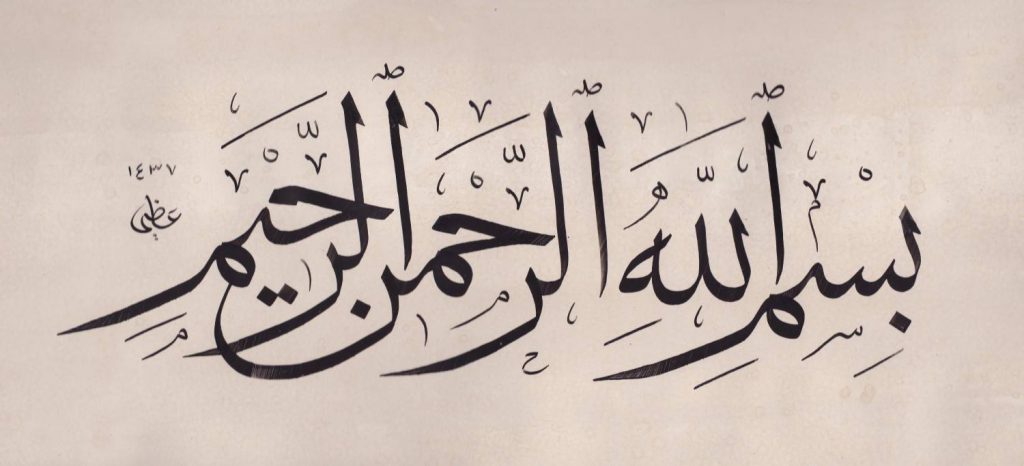
Ya Sabur, Ya Hamid, Ya Salam, Ya Haqq, Ya Wadud
It is a golden time
when Your Sabr
is shining.
We wait,
knowing time
is passing,
patient
with the Decree
of God,
and yet yearning…
You bring us
through
a tunnel of Love,
when first we are birthed,
and in this life of longing
we traverse
mountains
and pass through
hidden passages
among the rocks,
treacherous turnings,
and open plains,
upon whose lap
we can see the sky
and rest awhile
among Your Stars.
***
Holistic Islam. Sufism, Transformation, and The Challenge of Our Time
Kabir Helminski
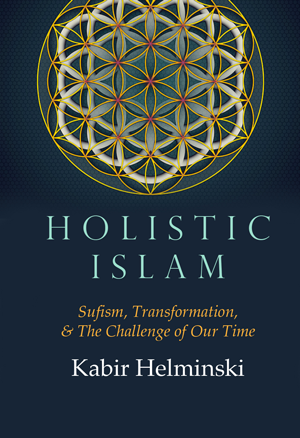
Forthcoming in May, available through Amazon, etc.
Sufism has long been the kernel of Islamic truth and the embodiment of its wisdom. Kabir Helminski’s Holistic Islam is a sagacious and indeed perspicacious walk through the heart and soul of Islam. It is an essential source for anyone who is interested in Sufism or in the moral impulse that motivated great sages like Rumi and Hafiz. Perhaps, more importantly, I think this book is a must read for anyone who wants to understand the real Islamic faith.
~ Dr. Khalid Abou El Fadl, Distinguished Professor of Islamic Law at the UCLA Law School, UCLA. and author of The Great Theft: Wrestling Islam from the Extremists
***
Spotify Playlist of Threshold & Friends Music
A wonderful compilation of Threshold music to keep you company as you work,
travel and meditate: listen here
***

Threshold’s collaborative blog channel The Living Tradition on Patheos.com is reaching new audiences and sharing the experiences of our community in a unique and vibrant way.
Let us know what you think by commenting on the posts — join the discussion at www.patheos.com/blogs/livingtradition and “follow” The Living Tradition.
Recent articles:
Translating Love’s Confusion: Hollywood and Misreading Rumi by Daliah Merzaban
Prophet Muhammad (pbuh) and the Women in His Life by Anna Rohleder
***
Women of Sufism study group
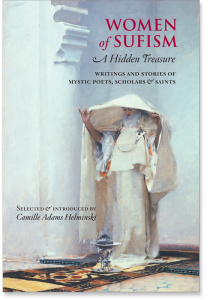 Friends of the Threshold community are invited to a study group to read and discuss Women of Sufism: A Hidden Treasure, Writings and Stories of Mystic Poets, Scholars, and Saints by Shaikha Camille Helminski.
Friends of the Threshold community are invited to a study group to read and discuss Women of Sufism: A Hidden Treasure, Writings and Stories of Mystic Poets, Scholars, and Saints by Shaikha Camille Helminski.
The book has been split into segments and we invite you to share your ongoing reflections. See the website for more details, guidelines and access to the discussion posts.
The password to access the discussion posts is khadija.
Join the discussion: womenofsufism.com
***
Calendar
May 5-9: Paradise Island, Bahamas. Meditation Symposium at the Sivananda Ashram. sivananda.org (KC)
Apr 22: Dallas, US. An Evening of Sema and Poetry with Kabir & Camille, and an extraordinary ensemble of musicians (info forthcoming).
May 25-Jun 24: Ramadan
Jul 7-9: Whistler, Canada. Annual Retreat British Columbia, deep in nature, following Ramadan. (KC)
Sep 1-4: UK Annual Retreat, Gaunts House, Dorset (KC)
Oct 19-23: San Jose, US. Science & Non-Duality Conference (K)
Events with Sh. Kabir and Sh. Camille marked (KC)
***
Mercy Centre Retreat, California
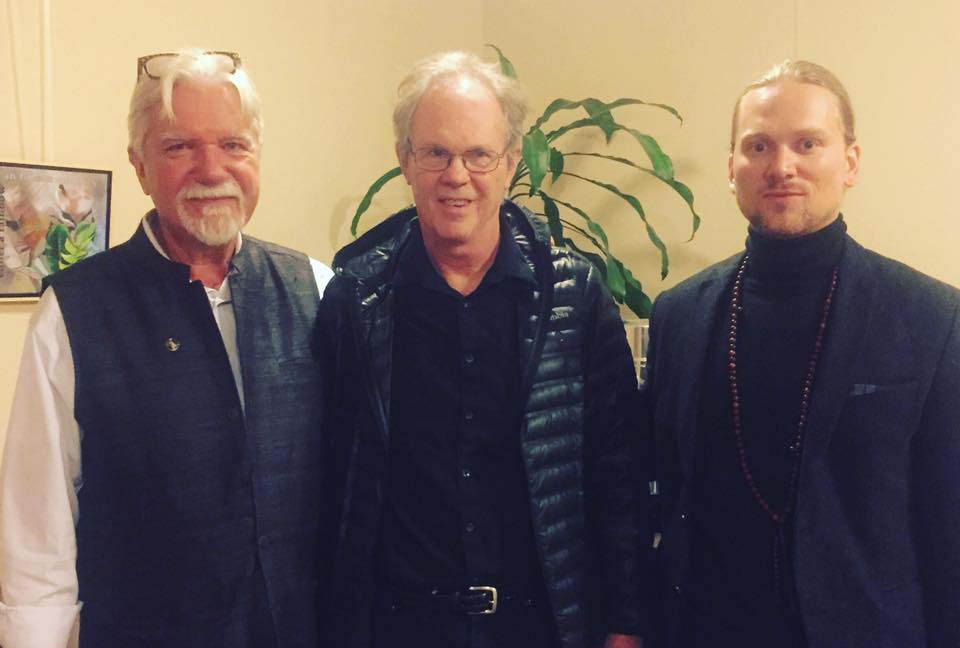
Shaikh Kabir, Michael Wolfe and Baraka Blue
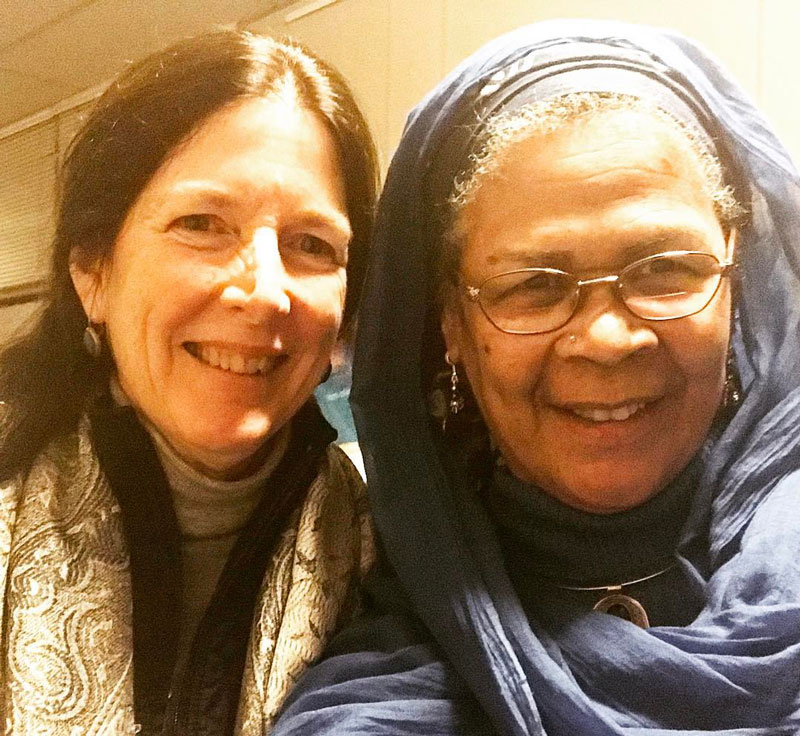
Shaikha Camille and Amina Wadud
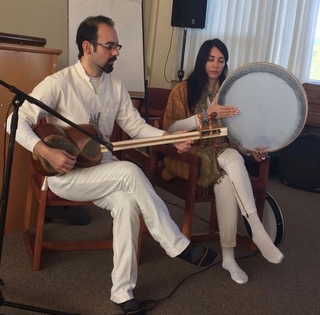
Amir & Nasreen Etmenazade
***
Words from the East
~ Shaikha Camille Adams Helminski ~
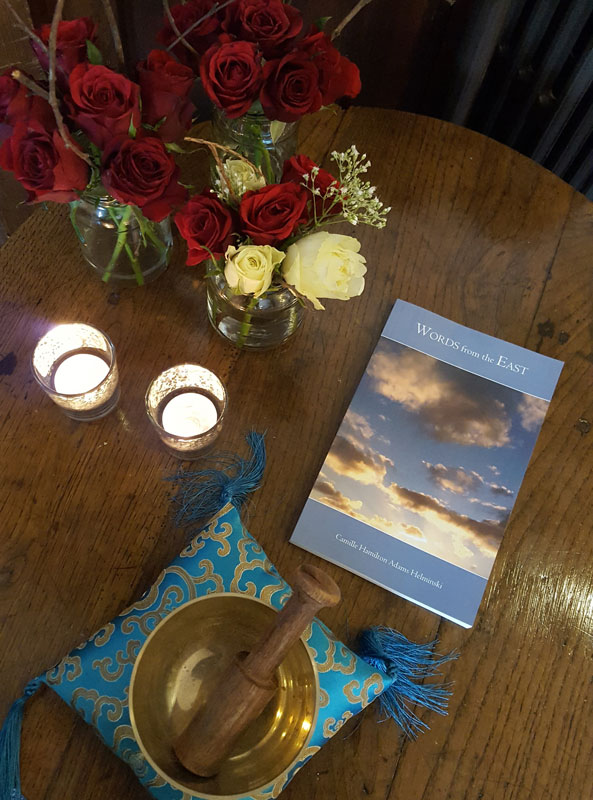
Let nothing block the ray of God.
I am ready and willing
for God’s Word to be done;
for His Will to flower in me
and spread its fragrance
everywhere, calling
the buzzing bee
who hovers, sips,
and flys off
but in doing so makes me
more fertile.
I give thanks for those
who pollinate
and help to spread the seed
of God.
Let there be no blot
on this Ray.
Let there be no self-love
to block this Way.
Amen.
***
We’d love to hear from you – get in touch at eyeoftheheart@sufism.org
***
Find out how to support the work of Threshold Society
***

